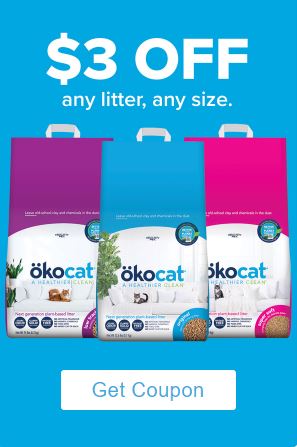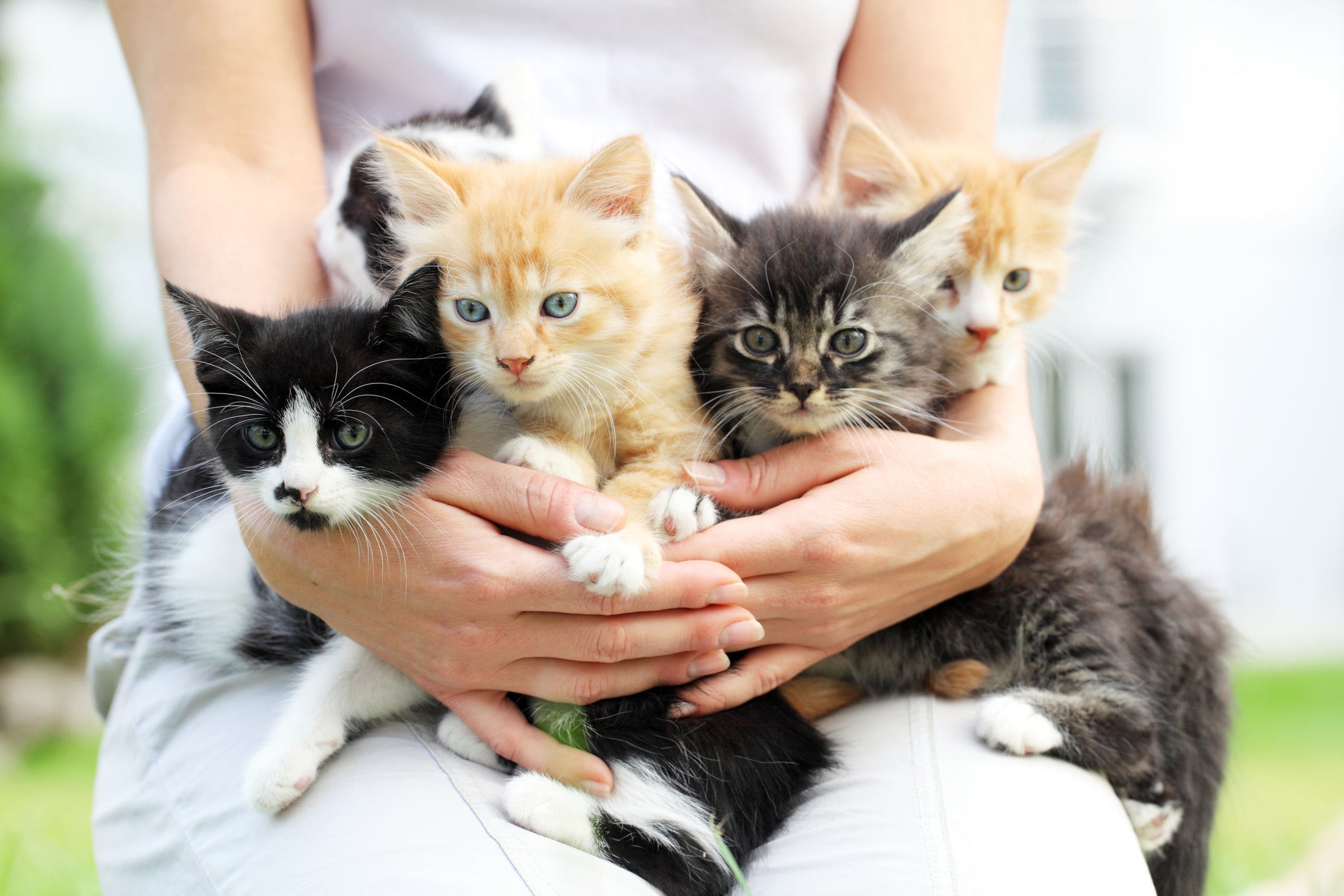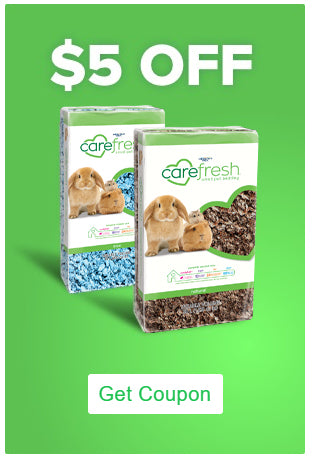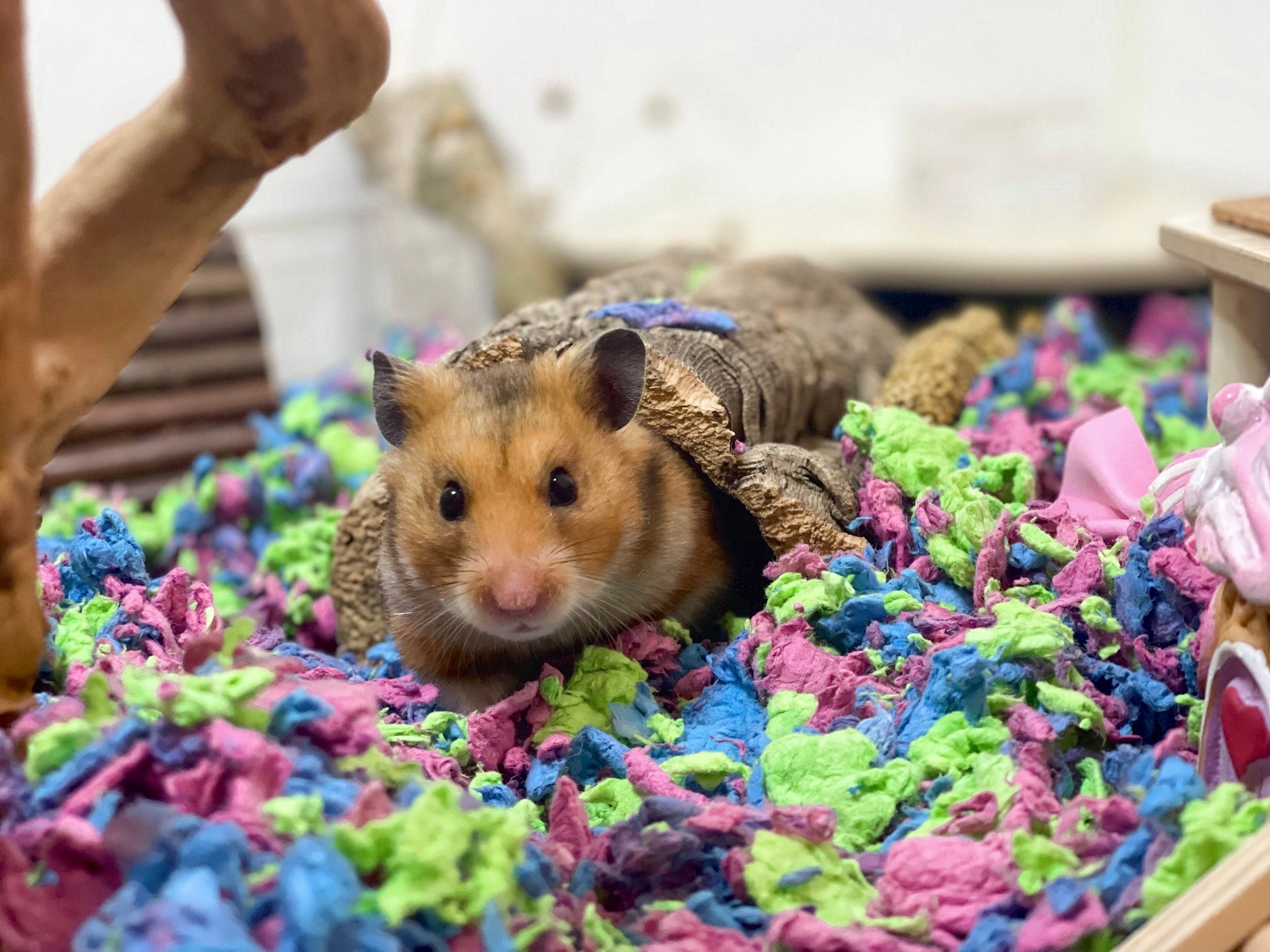A Beginner's Guide to the Best Ferret Care
Ferrets are adorable and entertaining pets. Though ferrets are generally healthy, like any other pet, they require proper care and attention to remain happy and healthy. The average lifespan of a ferret is 7-10 years. To ensure that your ferret lives a long and healthy life, you will need to provide proper housing, good nutrition, exercise, grooming, and preventative veterinary care.
1. Housing
Ferrets love to play and explore, which means that they need a spacious cage with plenty of room to move around. Their cage size should be at least 24 inches long, 24 inches wide and 18 inches high. Make sure the cage is big enough to separate your ferret’s food and water, bedding and litter. Multi-leveled cages work well for young healthy ferrets. Your ferret’s cage should be made of durable materials such as metal, plastic, or wood, with secure doors and locks to prevent your ferret from escaping. Midwest makes this very nice deluxe cage that works great for ferrets.
In addition to the cage, you will need bedding to cover the cage floor. You can use recycled paper products, aspen chips, and wood pulp products, such as carefresh®. carefresh® is ideal for ferrets because it is twice more absorbent than shavings, can suppress odors for up to 10 days, is 99% dust-free, and is soft and comfortable. Newspaper is not ideal since it is not very absorbent and needs to be changed frequently. Cedar and pine shavings are not recommended because they can cause respiratory problems. Corn cob products are also not recommended as they can be ingested and lead to obstructions. No matter which bedding you ultimately chose, the bedding needs to be changed regularly to keep the cage clean and odor-free.
Ferrets can be trained to use a litter box. You’ll need a corner litter boxes and a litter made from paper such as carefresh Rabbit and Ferret Litter. Finally, remember that your ferret needs a place to sleep and hide. They should have a hiding place where they can feel safe and secure. They also like to lounge in soft hammocks or slings.
2. Feeding
Ferrets are obligate carnivores with high metabolisms. Ferrets require a high-protein diet that is specially formulated for them. Feed your ferret high-quality commercial ferret food that is high in protein and avoid foods that contain fillers, artificial preservatives, and sugar. Remember to always provide clean water and change it frequently. Treats should also consist primarily of meat. It is important to know that cat and dog food do not fulfill the nutritional needs of ferrets.
3. Exercise and Play Time
Ferrets are naturally playful and social pets. They are not cage pets. To stay healthy, ferrets need regular exercise and playtime. Let your ferret go out of their cage for at least two hours per day so they can play and explore in a designated ferret-proof room or playpen. You can also take your ferret outside for walks using a special ferret harness. Purchase toys that are safe for your ferret to play with, like balls, tunnels (ferrets love tunnels), and chew toys. Make sure the toys you provide have nothing your ferret can chew off and swallow. Be sure to always supervise your ferret, as they are very curious and can get themselves into trouble if left unattended.
4. Grooming
Ferrets have a sleek coat that requires little maintenance. However, they do need to be groomed occasionally to prevent hairballs and maintain healthy skin. Brush your ferret's coat with a soft-bristle brush at least once per week. Like other mustelids, ferrets normally have a slightly musky odor. Regular bathing is not required, but if done should be no more than once a month as it can strip their skin of natural and essential oils leading to dry itchy skin.
5. Veterinary Care
Just like other animals, Ferrets need to see the veterinarian annually for a complete physical exam and vaccinations for canine distemper and rabies. As ferrets get older, they may require more frequent check-ups and need dental cleanings.
In conclusion, ferret are relatively low-maintenance pets. However, to stay healthy and live a long life, they need proper care. Follow these tips to ensure that your ferret lives a long healthy life.
Read MoreBigger is Better for Your Small Pets
Many people are drawn to smaller pets like hamsters, gerbils and guinea pigs due to space constraints. But the fact is even though these pets are small, when it comes to caring for them, bigger is better. Small pets do better with larger habitats, more bedding, ample hay, and lots of exercise and socialization.
Large Habitat
They may be little but even small pets need elbow room. A larger habitat allows pets room for exercise and more space to sleep, eat and play. There is a body of literature supporting the health benefits of a larger cage size. These studies show benefits with reproduction, lifespan activity, and other positive effects. Since you can’t take your gerbil on a walk, their habitat needs to be larger enough to accommodate exercise wheels and space to run around.
More Bedding
Likewise providing ample bedding is preferred as it allows pets to dig, tunnel and forage for treats. Having plenty of bedding also helps keeps their enclosure clean and dry. Soiled bedding not only smells bad but can lead to medical problems. In particular it can lead to pododermatitis, more commonly known as bumblefoot, which is an inflammation of the skin of the paws and feet. Bumblefoot is common in rodents and small animals that are housed on abrasive surfaces, (like wire) and those that have prolonged contact with wet or soiled bedding. Bumblefoot causes red, swollen, painful feet and lameness. Left untreated it can lead to severe infections, arthritis, and chronic inflammation of the tendons. To prevent health issues like pododermatitis, be sure your pets always have plenty of soft absorbent bedding like carefresh, spot clean as needed, and change bedding regularly. Avoid using cedar chips or pine materials which may be toxic to some animals.
Ample Hay
Fresh grass hay is a vital component of a small pet’s diet and has many health benefits. Hay provides essential fiber. Dietary fiber stimulates gut motility and helps promote normal healthy stools. Dietary fiber also helps reduce the risk of obesity. Certain small animals, like rabbits, chinchillas and guinea pigs, need hay for their dental health. Their teeth grow continuously, and hay satisfies their natural need to chew and helps wear down their teeth so that they do not become overgrown. Finally, hay keeps small pets busy and helps prevent boredom. Be sure your small pet has ample high-quality grass at all times. Speak with your veterinarian to learn which type of hay is best for your pet.
Exercise & Socialization
Just like us, small pets need exercise and socialization. The more the better. Provide your pet exercise wheels, tubes and/or play structures that allow them to climb, explore and run. Don’t forget you can take your little critters out of their cage for exercise too. Hamster balls are great fun for hamsters, humans and even entertainment for curious cats. Larger animals like, guinea Pigs and rabbits enjoy exercising in exercise pens that can be set up inside or outside (always be sure to supervise them especially if they are outside). In addition to exercise all pets need companionship and socialization. Be sure to give your pets lots of love, cuddles and pets. The more love the better.
Exception to the rule
In the case of food and fruits and veggies, more is not better. Too much fruit can lead to obesity and gastrointestinal problems. Likewise, too much commercial food like pellets can also lead to an overweight pet. The best way to prevent over feeding or intestinal upset is to follow feeding guidelines for your particular pet’s species. Wee Companions is a great resource for information about small pet husbandry, care and nutrition and don’t forget you can also ask your veterinarian for advice.
Conclusion
These pint size pets may be small, but they give lots of love. Be sure you provide them with the space, bedding, hay and exercise they deserve. And remember, in this case bigger is better.
Read MoreVet Tips for the Best Guinea Pig Care
Guinea pigs make great pets, especially for first time pet owners. They are friendly, hardy, relatively easy to take care for, and have adorable personalities. If you are thinking about getting a guinea pig, what will you need to have? Guinea pigs need: housing, pet supplies, food, toys and of course, lots of love and attention.
Housing
First and foremost, your piggy will need a place to call home. When picking a habitat for your pig, the most important consideration is getting the right size for the enclosure. Unlike smaller rodents, guinea pigs need more space. According to the Humane Society, the minimum size for one guinea pig is 7.5 square feet (30” x 36”), but bigger is better. The minimum size for two guinea pigs is also 7.5 square feet, but 10.5 square feet is preferred (30” x 50”). Guinea pigs should also be housed in a home with a solid bottom. Avoid cages with wire bottoms as these can harm their feet. Ideally choose a habitat made for guinea pigs as these often have ramps and second levels made especially for guinea pigs. The cage needs to be large enough to have a hut for your piggy to hide and sleep in. You can buy plastic guinea pig huts or use a small upside-down cardboard box as well. You also want room for tunnels and other play toys, and of course, your sturdy ceramic food and water bowls. Most cages made for guinea pigs have removable bottom trays that allow for easy cleaning.
Midwest makes a good size guinea pig habitat and you can add on more for additional space.
In addition to the habitat, you will need bedding to cover the floor. You can use recycled paper products, aspen chips, and wood pulp products, such as carefresh®. carefresh® is ideal for guinea pigs because it is twice more absorbent than shavings, can suppress odors for up to 10 days, is 99% dust-free, and is soft and comfortable. Newspaper is not ideal since it is not very absorbent and needs to be changed frequently. Cedar and pine shavings are not recommended because they can cause respiratory problems. Corn cob products are also not recommended as they can be ingested leading to obstructions. No matter which bedding you ultimately chose, the bedding needs to be changed regularly to keep the cage clean and odor-free.
Finally, your guinea pig needs an “igloo” or hut to hide or sleep in. Guinea pigs like to have a hiding place where they can feel secure. Can you blame them for wanting some privacy?
Food
Guinea pigs need three food essentials: guinea pig pellets, hay and fresh fruits and veggies. Pick a high-quality guinea pig pellet and make sure it is always accessible to your piggy. While pellets are a major part of their diet, they also need to have fresh hay every day. You can choose from Timothy Hay, alfalfa, or other grass hay varieties made for guinea pigs. Hay is necessary for their intestinal health and to help prevent their teeth from overgrowing. Guinea pigs also need fresh fruit and vegetables every day. Guinea pigs require a dietary source of vitamin C as they lack the enzyme required to synthesize Vitamin C. Without a daily source of vitamin C, they can develop scurvy from vitamin C deficiency. Foods such as parsley, cilantro, kale, spinach, broccoli, and peppers, beet greens and tomatoes contain high levels of vitamin C. While fruits are also a good source of vitamin C, they should be offered only in small quantities as treats due to their high sugar levels. Vitamin C can also be added to your guinea pig’s water. Finally, don’t forget to provide clean water in a either a bowl or water bottle. Water bottles are preferred since they stay cleaner longer and can hold a lot of water.
Toys
Like other animals, guinea pigs like to play with toys. Guinea pigs like to play with balls, bells, and stuffed animals, but chew toys are by far their favorite. There are a number of different wooden chew toys you can clip to their cage. Guinea pigs also like cardboard tunnels. Not only are they fun to chew, but they also provide a hiding place and are fun to push around. Consider getting an exercise pen so your guinea pig can get some exercise and safely explore outside of their cage. Make sure to avoid exercise wheels and balls. Guinea pigs’ have different anatomy than smaller rodents and their spines are unable to bend backwards. Exercise wheels and balls can cause severely back injuries. Remember, guinea pigs are social animals and they simply enjoy your company and being petted. You can tell they are happy by the cute sounds they make when they are being loved.
Pet Care
Like other rodents, guinea pigs have teeth that grow continuously. In order to prevent their teeth from becoming overgrown, they have to wear down their teeth. This can usually be accomplished by providing them with hay at all times, chew toys, and cardboard tunnels. If their teeth become overgrown, they may be unable to eat and will need to see a veterinarian. In addition to their teeth, guinea pigs need to have their nails trimmed every few weeks. Without regular nail trims, their nails can get overgrown and become painful. If your guinea pig is of the long-haired variety, it will need to be brushed regularly to prevent matting.
Guinea pigs are social animals and generally do well with other guinea pigs. If you decide to get more than one guinea pig, make sure they are of the same sex. Otherwise you will end up with a household full of guinea pigs. Finally, although guinea pigs are relatively hardy, they are curious and can get themselves in trouble. Keep an eye on your guinea pig and make sure that they don’t chew on electrical cords, eat something they shouldn’t, or fall and injury themselves.
Lastly just like cats and dogs, it is ideal for guinea pigs to have annual check-ups. If you don’t already have a veterinarian be sure you choose one that sees guinea pigs and make an appointment to bring your new piggy in for a wellness check right away.
If you’ve decided to get a guinea pig, keep these suggestions in mind and buy the supplies you need to welcome your new guinea pigs home.
Read MoreFilter - Key Words
- bedding
- biodegradable
- Bunny
- carefresh
- cat health
- cats
- CritterCare
- dog
- ferret
- fostering
- Guinea Pig
- habitat
- hamster
- health
- Healthy Pet
- kitten
- litter
- ökocat®
- paper bedding
- pets
- Rabbit
- safety
- small animal
- small pet
- sustainable
- Vet
- Veterinarian
Dr. Ruth MacPete

aka Dr. Ruth, The Pet Vet
“I am passionate about pet care and educating pet parents about making Earth-friendly choices, and I admire Healthy Pet for making products that are good not only for your pets, but also your family and the environment.”
Visit the Pet Vet






